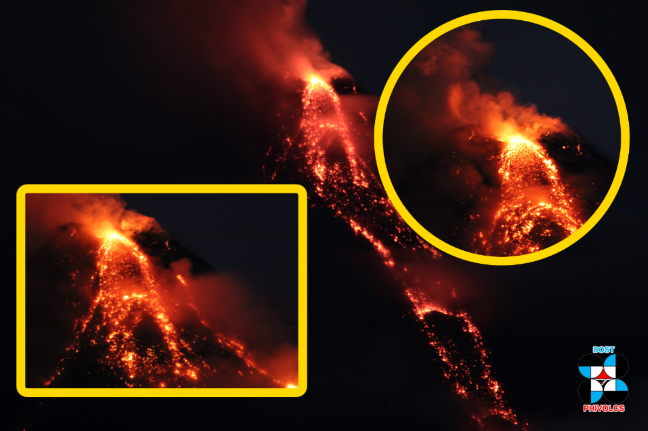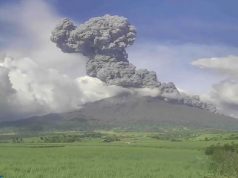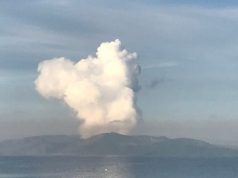MANILA, Philippines — Restive Mayon Volcano continued to emit lava fountains and ash plumes overnight as the number of families affected had risen to 22,827, or 88,886 persons, from 56 barangays in Bacacay, Camalig, Guinobatan, Ligao City, Daraga, Tabaco City, Malilipot, Santo Domingo and Legazpi City as of Friday, January 26.
Of these, the National Disaster Risk Reduction and Management Council said 18,365 families, or 69,672 persons, are housed 69 evacuation centers.
The agency also said classes have been suspended I 17 towns and cities of Albay and Camarines Sur provinces while 11 international and 86 domestic flights have been canceled since January 22.
The Philippine Institute of Volcanology and Seismology said that, from 6:11 a.m. Thursday to 2:31 a.m. Friday, seven “episodes of intense but sporadic lava fountaining from the summit crater lasting 26 minutes to 57 minutes occurred.” Phivolcs also mentioned that prospective rainy days ahead could herald possibly hazardous lahar flows due to the washing down from the volcano’s flanks of pyroclastic debris and accumulated ash fall with volcanic sediment uxuded by the eruption.

“The lava fountains reached 150 meters to 500 meters high and generated ash plumes that reached 500 meters to 3 kilometers above the crater” and “fed lava flows (in) the Mi-isi and Bonga Gullies, sprayed near-vent lava spatter, and fed incandescent rockfall on the summit area,” Phivolcs added.
The agency also said pyroclastic density currents, or swift-moving walls of super-heated gas and volcanic materials wee also observed with tha in the Buyuan Channel “now exceeding 5 kilometers from the summit crater.”
Phivolcs also recorded 15 volcanic earthquakes and 19 “tremor events,” seven of these associated with the lava fountaining, as well as “numerous rockfall events” triggered by “the collapsing lava front and margins of the advancing lava flow on the Mi-isi and Bonga Gullies.”
Mayon Volcano remains under Alert Level 4, meaning a hazardous eruption is imminent.









